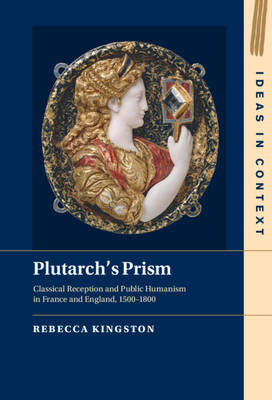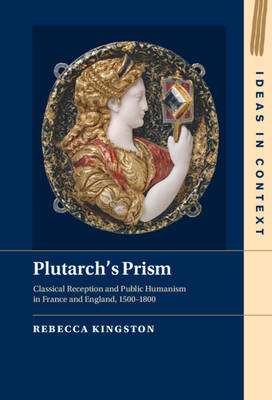
Bedankt voor het vertrouwen het afgelopen jaar! Om jou te bedanken bieden we GRATIS verzending (in België) aan op alles gedurende de hele maand januari.
- Afhalen na 1 uur in een winkel met voorraad
- In januari gratis thuislevering in België
- Ruim aanbod met 7 miljoen producten
Bedankt voor het vertrouwen het afgelopen jaar! Om jou te bedanken bieden we GRATIS verzending (in België) aan op alles gedurende de hele maand januari.
- Afhalen na 1 uur in een winkel met voorraad
- In januari gratis thuislevering in België
- Ruim aanbod met 7 miljoen producten
Zoeken
Plutarch's Prism
Classical Reception and Public Humanism in France and England, 1500–1800
Rebecca Kingston
€ 206,45
+ 412 punten
Omschrijving
Throughout the early modern period, political theorists in France and England drew on the works of Plutarch to offer advice to kings and princes. Elizabeth I herself translated Plutarch in her later years, while Jacques Amyot's famous translations of Plutarch's The Parallel Lives led to the wide distribution of his work and served as a key resource for Shakespeare in the writing of his Roman plays, through Sir Thomas North's English translations. Rebecca Kingston's new study explores how Plutarch was translated into French and English during the Renaissance and how his works were invoked in political argument from the early modern period into the 18th century, contributing to a tradition she calls 'public humanism'. This book then traces the shifting uses of Plutarch in the Enlightenment, leading to the decline of this tradition of 'public humanism'. Throughout, the importance of Plutarch's work is highlighted as a key cultural reference and for its insight into important aspects of public service.
Specificaties
Betrokkenen
- Auteur(s):
- Uitgeverij:
Inhoud
- Aantal bladzijden:
- 458
- Taal:
- Engels
- Reeks:
- Reeksnummer:
- nr. 142
Eigenschappen
- Productcode (EAN):
- 9781009243483
- Verschijningsdatum:
- 29/09/2022
- Uitvoering:
- Hardcover
- Formaat:
- Genaaid
- Afmetingen:
- 152 mm x 229 mm
- Gewicht:
- 775 g

Alleen bij Standaard Boekhandel
+ 412 punten op je klantenkaart van Standaard Boekhandel
Beoordelingen
We publiceren alleen reviews die voldoen aan de voorwaarden voor reviews. Bekijk onze voorwaarden voor reviews.









